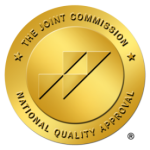Addiction is a complex and often misunderstood condition that affects millions of people worldwide. It can have devastating consequences for individuals and their loved ones. To combat addiction effectively, it’s crucial to understand its scientific foundation, the various types of addictions, the stages that individuals may go through during their journey toward recovery, and the signs of addiction that loved ones should watch for. This article explores these topics to help individuals better understand the complexity of addiction; education is the first step towards recovery.
The Science Behind Addiction
Brain Chemistry:
Addiction is fundamentally a brain disorder. It alters the brain’s normal functioning, leading to compulsive drug or alcohol use despite negative consequences. Key components of the brain involved in addiction include the reward system, the prefrontal cortex (responsible for decision-making), and the limbic system (regulating emotions).
Dopamine’s Role:
The brain’s reward system releases dopamine, a neurotransmitter, in response to pleasurable experiences. Drugs and alcohol can hijack this system, flooding it with dopamine, creating intense feelings of pleasure and reinforcing substance use.
Tolerance and Withdrawal:
Over time, the brain adapts to the presence of substances, leading to tolerance, where larger amounts are needed for the same effect. When the substance is absent, withdrawal symptoms can occur, driving individuals to continue using to avoid discomfort.
Different Types of Addiction
Alcohol Addiction:
Alcohol use disorder (AUD) is characterized by excessive and compulsive alcohol consumption despite negative consequences. It can lead to physical and mental health problems, as well as strained relationships.
Drug Addiction:
Drug addiction can encompass a wide range of substances, including illicit drugs (e.g., cocaine, heroin) and prescription medications (e.g., opioids, benzodiazepines). Dependency on these substances can lead to severe health issues and legal troubles.
Opioid Addiction:
Opioid addiction, particularly to prescription painkillers and illicit opioids like heroin, has reached epidemic proportions in many countries. It poses significant risks, including overdose and death.
Behavioral Addictions:
Beyond substances, people can also become addicted to behaviors like gambling, gaming, or internet use. These addictions can have similar effects on the brain and can be just as challenging to overcome.
The Stages of Addiction
Experimentation:
Most addictions begin with experimentation, where individuals try a substance or behavior out of curiosity or peer pressure. At this stage, use is sporadic, and individuals may not yet experience significant negative consequences.
Regular Use:
With continued use, individuals enter the regular use stage. They may use substances or engage in addictive behaviors more frequently, and some negative consequences may start to emerge, such as impaired performance at work or school. Regular use can lead to poor decision making, strained relationships, and can lead to long term physical and mental health issues.
Risky Use and Dependency:
As addiction progresses, individuals may engage in risky behaviors to obtain the substance, such as driving under the influence or stealing to support their habit. Dependency sets in, marked by cravings and withdrawal symptoms.
Crisis and Loss of Control:
At this stage, addiction often spirals out of control. Individuals may experience serious health issues, strained relationships, legal problems, and financial ruin. They may want to quit but find it increasingly difficult as addiction has taken over all aspects of their life.
Seeking Treatment and Recovery:
Fortunately, recovery is possible at any stage of addiction. Seeking professional help, such as therapy, counseling, or rehabilitation programs, is a crucial step toward recovery. It’s a challenging journey, but with the right support, individuals can regain control of their lives.
Signs of Addiction in Loved Ones
It’s essential for family and friends to be vigilant for signs of addiction in their loved ones. These signs may include:
1. Changes in behavior, such as increased secrecy or isolation.
2. Neglecting responsibilities at work, school, or home.
3. A decline in physical appearance and personal hygiene.
4. Financial difficulties or unexplained expenses.
5. Mood swings, irritability, or uncharacteristic aggression.
6. Loss of interest in previously enjoyed activities.
7. Frequent and unexplained absences.
8. Legal troubles related to substance use.
If you notice these signs in someone you care about, it’s essential to approach them with compassion and encourage them to seek help from addiction professionals.
Understanding Addiction and Knowing When to Get Help
Understanding addiction involves recognizing its scientific roots, the various types of addiction, the stages of addiction, and the signs that loved ones should watch for. Addiction is a complex issue, but with knowledge, compassion, and appropriate treatment, recovery is attainable. If you or someone you know is struggling with addiction, reach out to an addiction specialist at Revive Recovery Centers to begin the journey to recovery. Remember, there is hope, and help is available.




